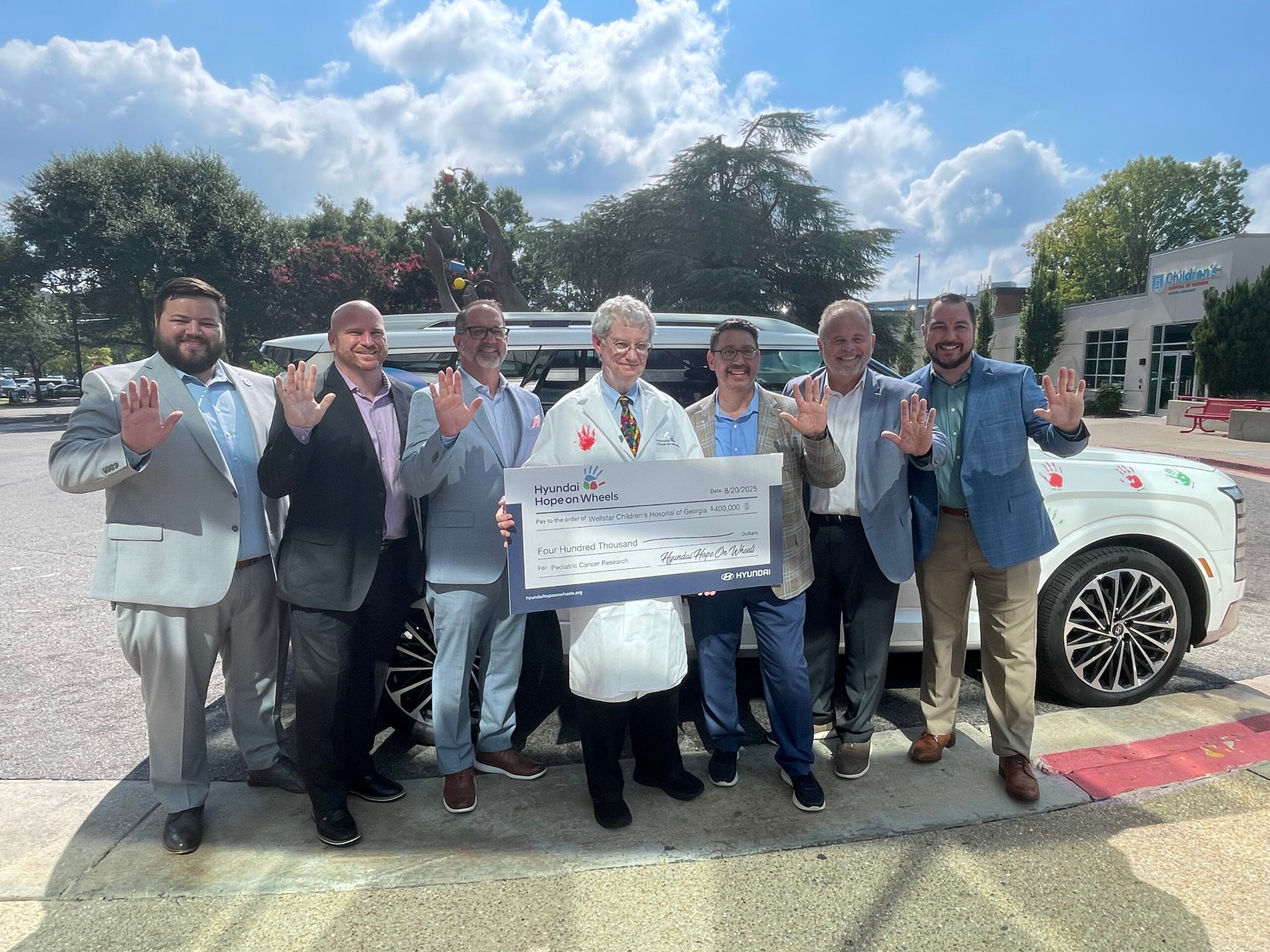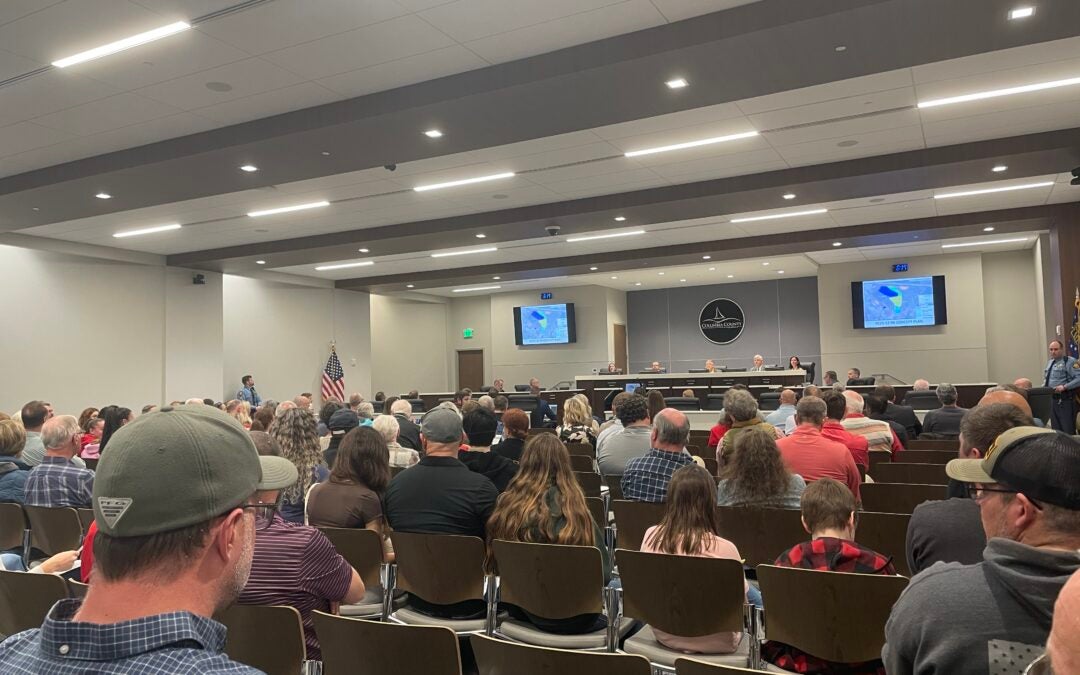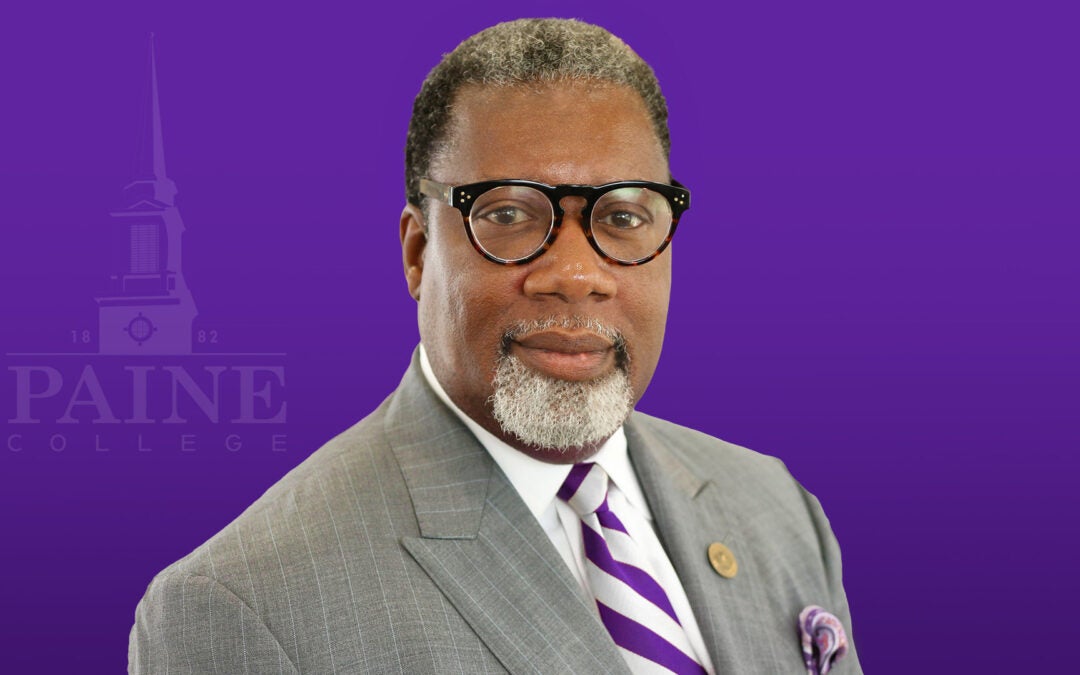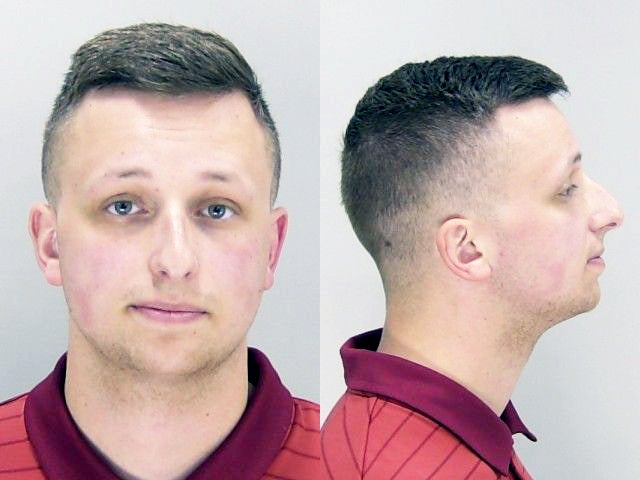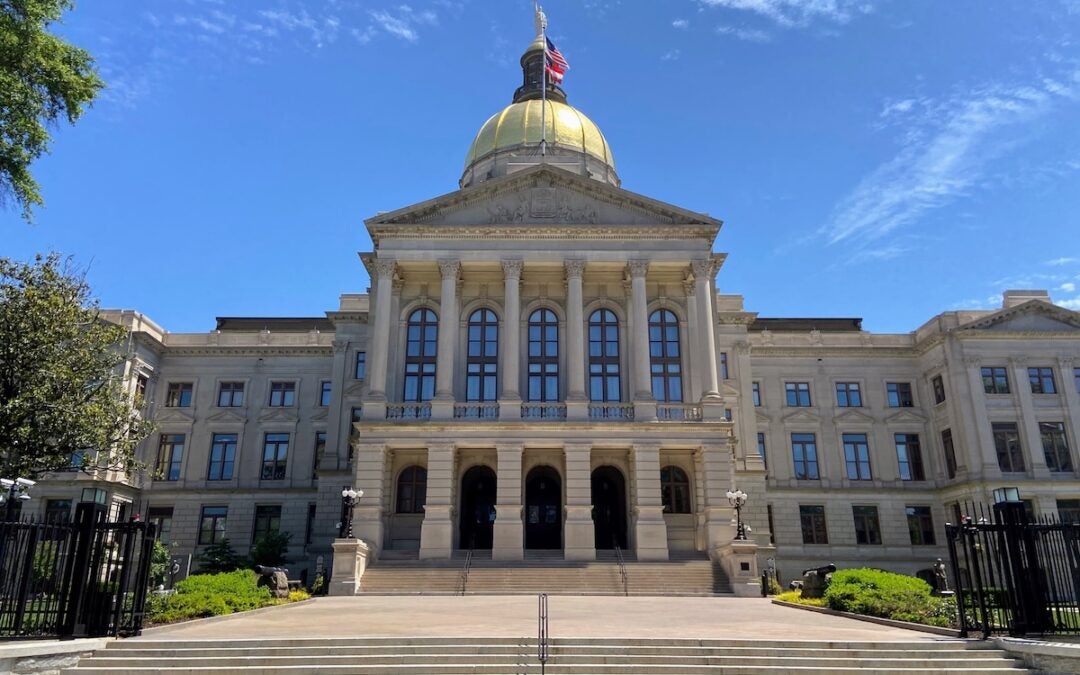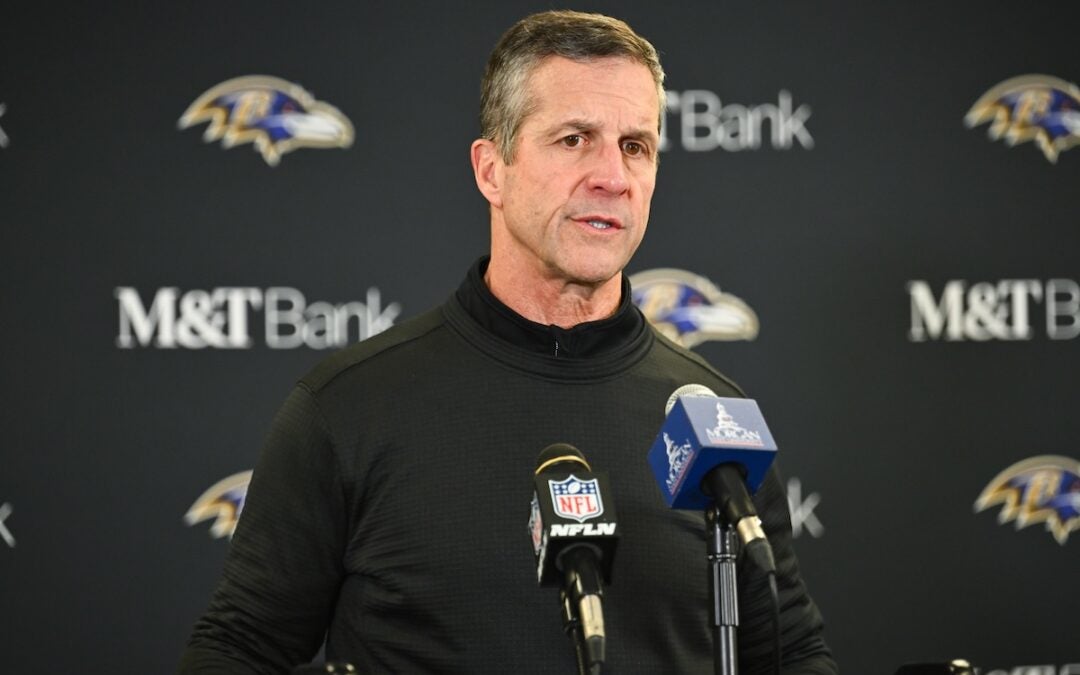Wellstar Children’s Hospital of Georgia celebrated accepting its latest contribution toward fighting cancer, Wednesday morning.
Hyundai Hope on Wheels is a grant program by the automotive company dedicated to funding pediatric cancer research. With more than 800 Hyundai dealerships nationwide participating, the program will donate some $27 million funds to hospitals and researchers this year, and has raised more than $270 million for such research since its inception in 1998.
Wednesday, Terry Lambert of Terry Lambert Hyundai brought Hope on Wheels to Georgia Children’s Hospital to present a check for $400,000 to Dr. David Munn, professor of pediatric oncology at Augusta University and the Medical College of Georgia.
“This is about hope and belief that a better future is possible,” said Lambert at the presentation ceremony. “Because we know that future is within reach, we’re seeing it be realized right here at Wellstar Children’s Hospital of Georgia, where children and families have access to some of the most advanced treatment and care in the world.”
The celebration also included Hope on Wheels’ Handprint Ceremony, in which young patients are invited to represent their fight against cancer with a painted handprint on a Hyundai vehicle. Three colors are used for the handprints: a red heart for love, a blue wing for hope and a green leaf representing recovery.
Monies from the two-year grant will go towards Munn’s research to develop a kind of treatment to aid the immune system in fighting cancer cells, allowing for decreased use of radiation.
“The body’s immune system is not good at recognizing the cancer as being foreign, it gets confused and it thinks it’s supposed to be there,” said Munn, explaining that the experimental treatment aims to reprogram the immune system to recognize the cancer as something that ought to be attacked. “You can do outpatient, low-toxicity chemotherapy while adding the immune system as a sort of natural helper to the chemotherapy antitumor effect.”
As children’s cancer is rare, and there are few laboratories doing research devoted specifically to treating it, Munn went on to explain. While the National Institutes of Health (NIH) does provide funding, adult cancer treatments are a larger market.
“We completely depend on the generosity of philanthropy like the Hyundai Organization, especially ones that are focused on getting pediatric research into the clinic to benefit kids,” Munn said.
When you treat kids, you make a new discovery, you see wow there’s an opportunity that we can exploit here, let’s do an additional set of experiments.
Skyler Q. Andrews is a staff reporter covering business for The Augusta Press. Reach him at skyler@theaugustapress.com.

